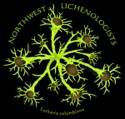"UW WASHINGTON ARBORETUM LICHENS"
Wednesday, January 24, 2024
Looking for a Winter activity for those short days in Seattle?
Why not consider lichens as an alternative? They grow on trees, shrubs and rocks in botanic gardens and can tell us about air quality and the make-up of plants and geology. Botanic gardens can take on new meaning as a *fun* place to observe a symbiotic organism made up of a fungus and algae. You will also learn about common lichens found in an urban environment and take home a user-friendly chart that lists lichens found in your neighborhood.
Always wondered about what lichens are and why they are found on your trees, Rhododendrons and Azaleas? Lichens are harmless to your plants and add aesthetic value to trees and shrubs. We can actually use them as indicators of air pollution! Join Dr. Katherine Glew at the Washington Park Arboretum on Saturday, January 24, to get a head start on learning lichens from one of Seattle’s botanic gardens. You can enjoy the late winter/early spring season by looking for lichens, rather than staying inside and missing out on the excitement of being outside.
Dates: Tuesday, January 24, 2024
Where: Washington Park Arboretum, UW Botanic Gardens Bring a hand lens on the field trip, if you have one, since you will want to look at the lichens more closely. Some cell phones can magnify and that will help you observing lichens more closely.Book: Macrolichens of the Pacific Northwest. McCune & Geiser. OSU Press.Third edition in 2024. A used copy, 2009, would be less expensive. Meet at the Visitor Center: 2300 Arboretum Drive E, Seattle, WA 98112
Map: Wisteria Hall – Google Maps to Graham Visitor Center

